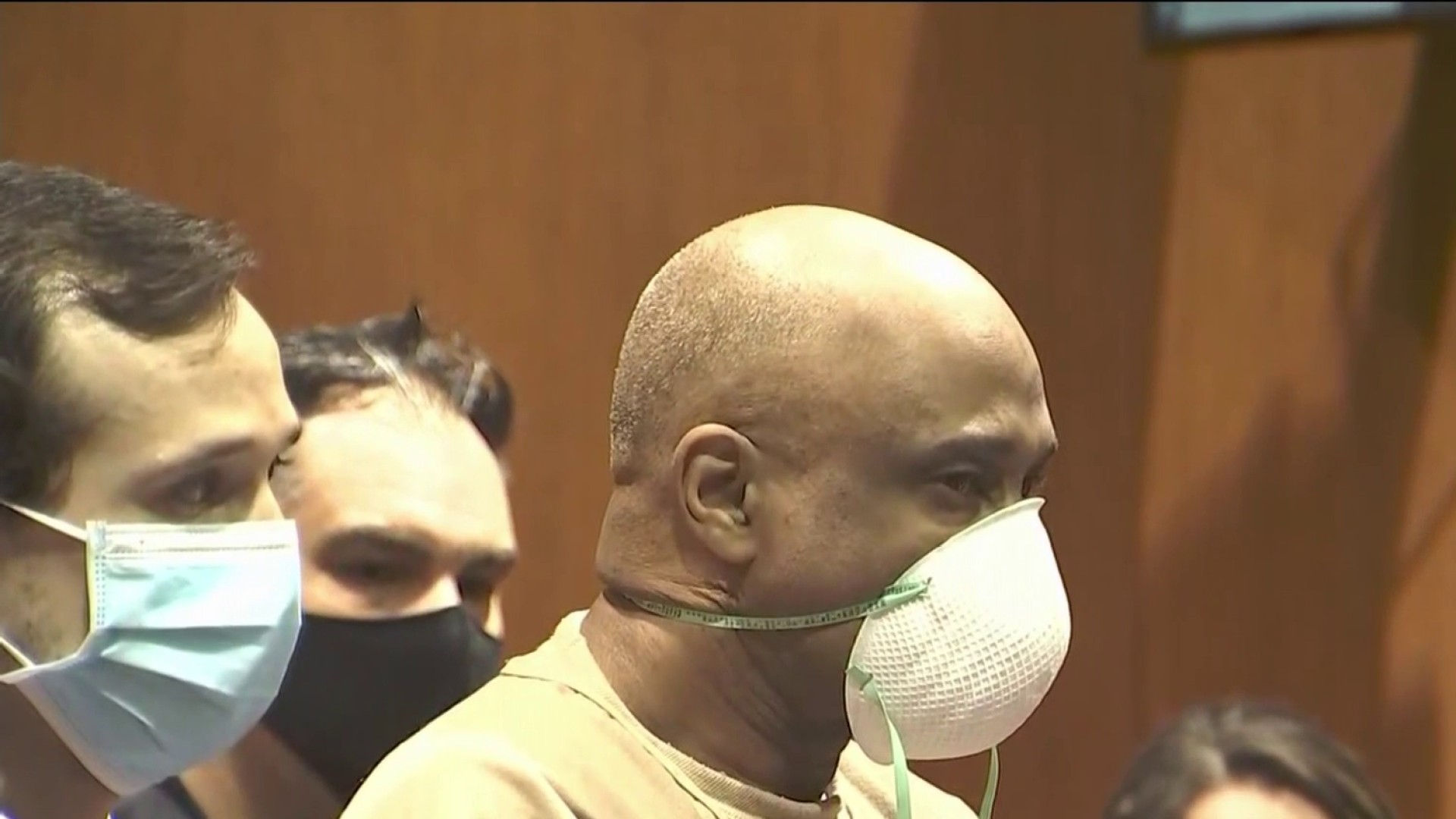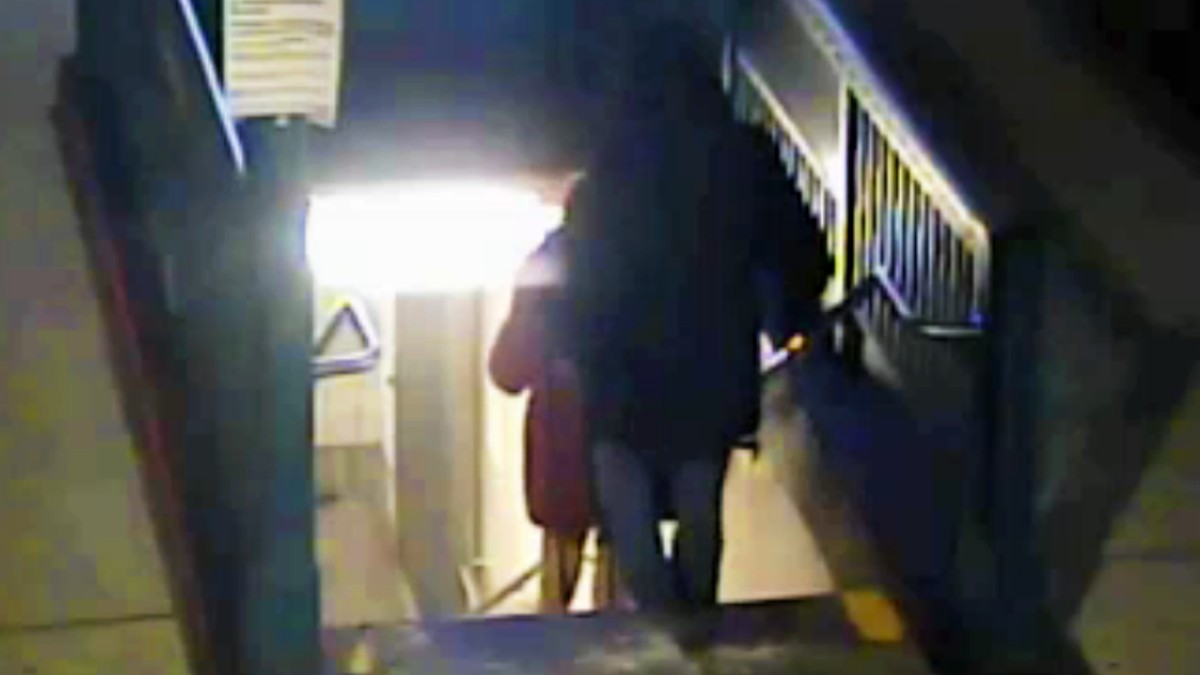Nina Rothschild lived to tell her story and recalls every terrifying moment.
A brutal, hammer-wielding attacker left the accomplished NYC Health Department scientist for dead on the Queens Plaza subway stairs after 11 p.m. on February 24.
“Fortunately or unfortunately, I remember basically the entire thing from start to finish,” Rothschild said in an exclusive interview with NBC New York. “I remember starting to go down the subway steps and feeling this blow to my head, which I initially thought was a baseball bat."
Surveillance tape from the scene shows the attacker sneaking up on Rothschild as she headed for the subway, after working late on her COVID-related assignments.
"I kept yelling stop, stop, stop, which of course was completely and utterly useless,” she said.
Get Tri-state area news delivered to your inbox. Sign up for NBC New York's News Headlines newsletter.
After kicking Rothschild and beating her with a cane from behind, the attacker pulled out a hammer, which he used to strike her in the head 14 times. Then he grabbed her bag and took off. Her skull was fractured and her brain was bleeding, but Rothschild was conscious and fighting for her life.
“I started calling help, help, help, help! And fortunately two NYPD officers who were I think on the lower platform down by the trains came up.”
An NYPD spokesman says officers from the 108th Precinct were in a position to respond to her screams because of Mayor Eric Adams’s newly implemented “visibility patrols” in subway stations, designed to address a persistent crime spike. (Major transit crime is up about 75% year-to-date versus last year, according to NYPD data.)
“I’m quite glad that we have a mayor who has experience as a police captain,” Rothschild said.
She describes the quick police response as "nothing short of miraculous, because otherwise I don’t know how long I might have been there.”
Rothschild was rushed to New York Presbyterian Weill-Cornell Hospital, alert, with an open, depressed skull fracture.
“I remember feeling the face mask descend on my nose prior to the surgery and feeling a big sense of relief, because that was the beginning of what would eventually be a reconstitution process."
Neurosurgeons operated overnight to repair the damage and relieve pressure on blood vessels that could have caused a stroke, according to a hospital spokeswoman.
When Rothschild woke up from surgery, she was mentally sharp, but could not move one of her feet.
She wondered if she would ever walk again.
“I could barely stagger a few steps,” Rothschild said.
But during two weeks of inpatient rehab, she got back on her feet.
“When the physical and occupational therapists were asking me ‘what are your goals?’ I said, ‘well, I want my life back!”
Rothschild says she is "too filled with gratitude” for her survival and excellent medical care to feel rage at her attacker. But she is dumbfounded by the senselessness and cruelty of the attack she endured.
“In retrospect, I think, like why did he need to hit me over the head with a hammer up to 14 times when he could have simply asked me for my bag — or shown me the hammer and said ‘if you don’t give me your bag I am going to hit you with this," she said.
The incident and shocking surveillance tape dealt yet another blow to the confidence of commuters as the mayor, governor, and business leaders scramble to restore ridership, key to the city’s economic recovery.
Out of the hospital now, Rothschild says she will not ride the subway anytime soon. She says she is unsteady on her feet, and simply too fearful.
“Traveling on the subway system right now does feel rather hazardous," she said.
Her coworkers at the NYC Health Department started a fund for their colleague, which Rothschild says she will use to pay for Ubers.
A native New Yorker, she says she never saw her attacker coming, despite steps she regularly took to stay safe on the trains seven days a week.
“I like to think I have my wits about me. I never wear earphones, because that would minimize the chance that you would hear somebody behind you.”
Asked what she thinks about New Yorkers now fleeing NYC because of crime, she said “I think it’s very sad, but it’s also completely understandable. And I can only hope that this wave of horror will come to an end.”
Three days after the attack, police arrested William Blount, who served time for crimes including kidnapping and an attempted escape that involved him jumping off the roof of a South Carolina prison. The incident left him with lasting injuries, including d a distinctive limp.
While New York State’s more permissive new bail laws did not apply to Blount, Rothschild wants to see those changes reversed.
“I would love to see that policy undone and people get incarcerated until the date of trial," she said. "Nobody should be able to have a special ticket out of the system because they’re wealthy or white or well connected. If you are accused of a violent crime … I would like to see you incarcerated until the date of your trial.”
Blount, 57, is in jail awaiting his next court date on April 11. He has pleaded not guilty to attempted murder in Nina’s case. At his arraignment on March 25, his attorney said Blount was not the person who attacked Rothschild. Law enforcement sources say the defendant is identified on several surveillance cameras wearing the same clothing after the attack.
Rothschild says she does not believe she is experiencing signs of post traumatic stress disorder, though she describes moments of feeling anxious and on edge.
“One moment in the hospital, I was having a dream in which somebody was hitting me in the right front temple with a hammer," she recalled.
In her darkest moments since the attack, Rothschild has relied on the memory of her resilient grandmother, who escaped Nazi Germany and went on to become a psychiatrist at Bellevue, caring for women with serious mental illness during World War II.
Rothschild, who has three graduate degrees from Columbia University, hopes she will recover enough to return in May to the work she loves.
She says she was happy to work long hours — sometimes without additional pay — as Health and Emergency Preparedness Coordinator at DOHMH, a role which has involved studying COVID mortality and vaccine hesitancy, as well as running the Rockaway Vaccination Pod during the height of the pandemic.
“I love immersing myself in something larger than I am,” Rothschild said.
For now she must take care of her own health, so she can tend once again to public health. A job Rothschild says will keep her in her hometown for a while longer.
“You know, certainly short term, I’m here," she said.



